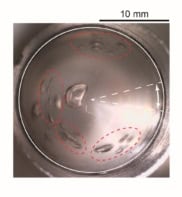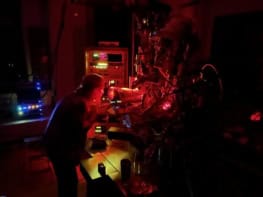
The American Physical Society (APS) has “overwhelmingly rejected” a proposal from a group of 160 physicists to alter its official position on climate change. The physicists, who include the Nobel laureate Ivar Giaver, wanted the APS to modify its stance to reflect their own doubts about the human contribution to global warming. The APS turned down the request on the recommendations of a six-person committee chaired by atomic physicist Daniel Kleppner from the Massachusetts Institute of Technology.
The committee was set up by APS president Cherry Murray in July, when the society received the proposal for changing its statement, which had originally been drawn up in November 2007. It has spent the last four months carrying out what the APS calls “a serious review of existing compilations of scientific research” and took soundings from its members. “We recommended not accepting the proposal,” Kleppner told physicsworld.com. “The [APS] council almost unanimously decided to go with that.”
Different positions
The official APS position on climate change says that “emissions of greenhouse gases from human activities are changing the atmosphere in ways that affect the Earth’s climate” and adds that there is “incontrovertible” evidence that global warming is occurring. The APS also wants reductions in greenhouse-gas emissions to start immediately. “If no mitigating actions are taken,” it says, “significant disruptions in the Earth’s physical and ecological systems, social systems, security and human health are likely to occur.”
However, the petition’s signatories claim that “measured or reconstructed temperature records indicate that 20–21st century changes [in climate] are neither exceptional nor persistent, and the historical and geological records show many periods warmer than today”. They say that various natural processes, such as ocean cycles and solar variability, could account for variations in the Earth’s climate on the time scale of decades and centuries.
“Current climate models appear insufficiently reliable to properly account for natural and anthropogenic contributions to past climate change, much less project future climate,” the petition concludes. It also points to “extensive scientific literature that examines beneficial effects of increased levels of carbon dioxide for both plants and animals”.
Next steps
Although the APS council turned down the request, it has, however, agreed to one proposal from Kleppner’s committee: that the society’s Panel on Public Affairs (POPA) should “examine the statement for improvements in clarity and tone”. Princeton University atomic physicist Will Happer, who was one of those leading the proposal for change, sees that fact as a form of vindication. “They basically sent both statements back to their committee on public affairs and asked them to reconsider,” says Happer. “I think it’s a big victory for us. Many of [the people who signed the petition] took quite a bit of risk in signing this statement.”
However, the APS firmly refutes Happer’s reading. “The council has, in effect, said we reject outright the replacement of our statement,” points out APS spokesperson Tawanda Johnson. “We are certainly not rejecting the 2007 statement. It’s still on our website. POPA reviews statements every five years; it would have come up for review anyway.”
Kleppner also points out that the call for change came from a small minority of the APS’s 47,000 members. “This is certainly not a majority opinion,” he says. “Most other physicists have come to a different conclusion looking at the same evidence.”



